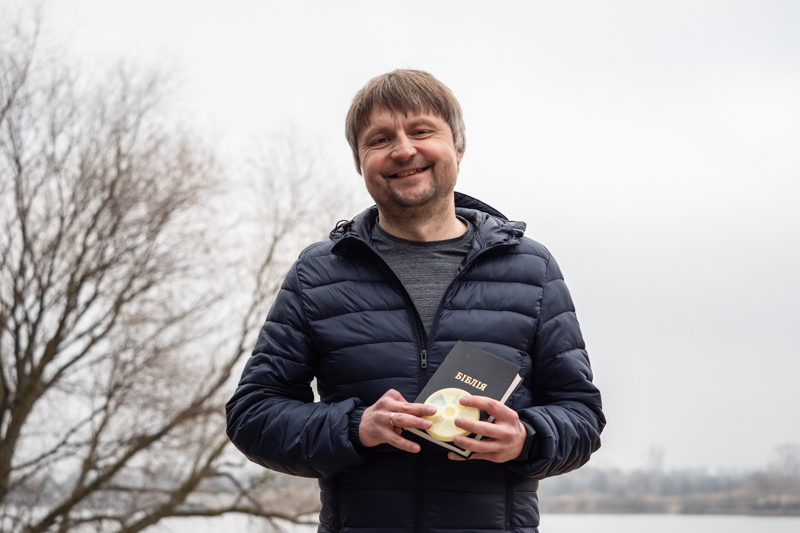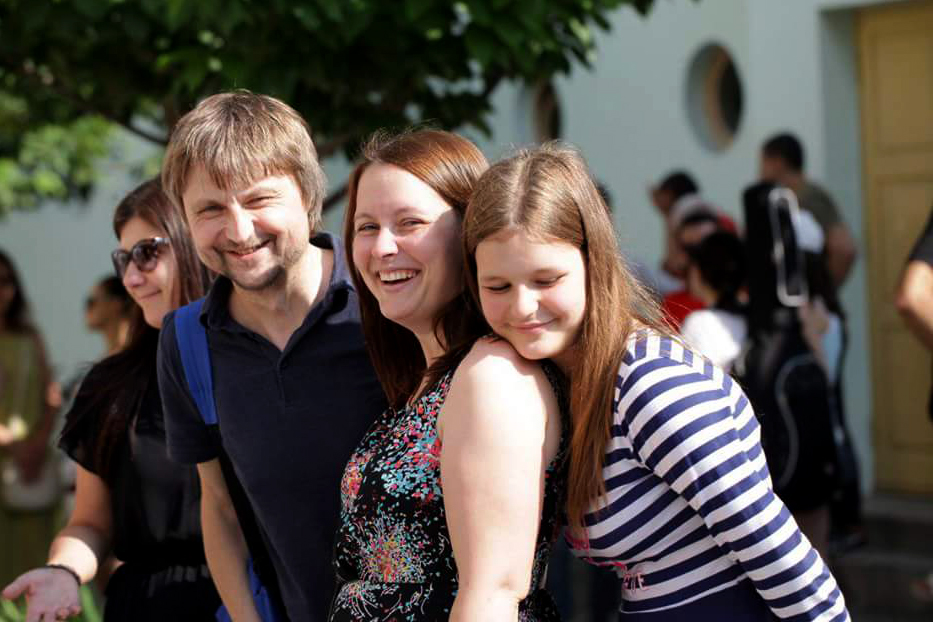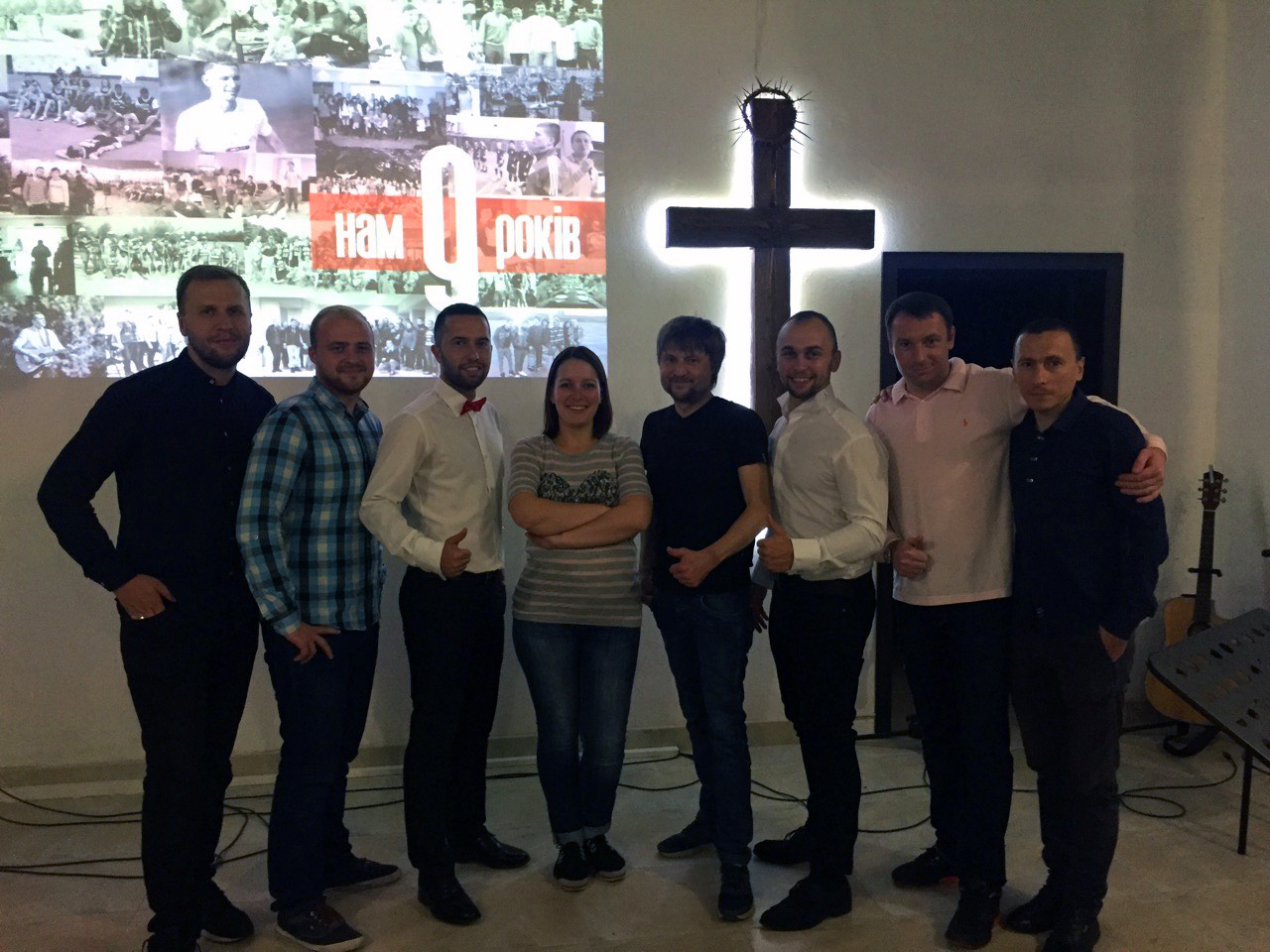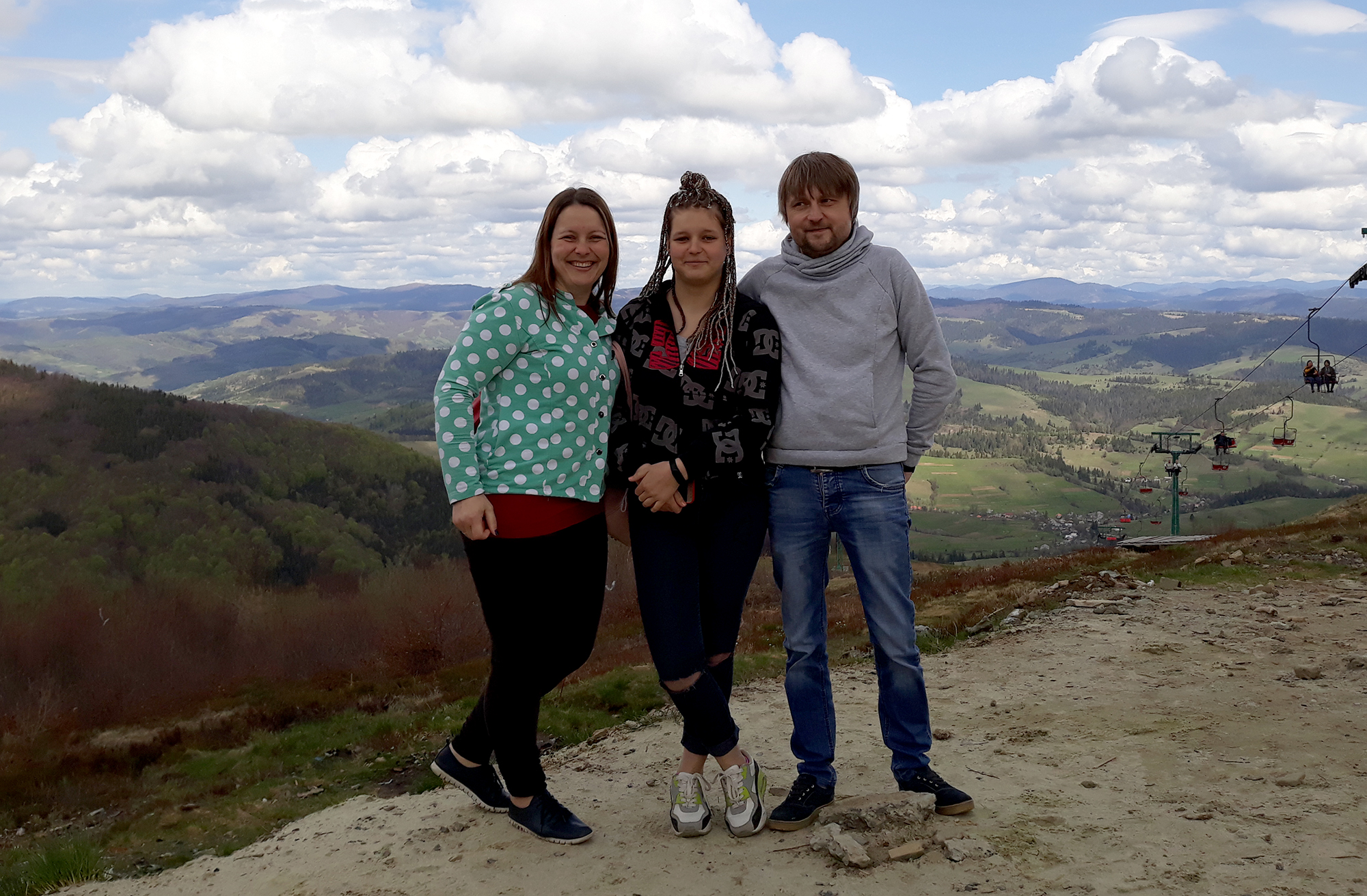Interviewed by Gemma Taylor.
“I’m never apart from this book, it’s what inspires me,” says Andrei, 44, a black leather bible firmly in his hand. He’s a minister of the Baptist Church in Ukraine.
“I’m never without these either,” he says, also gripping his HIV medication. “And I do read other books too,” he laughs.

His affable personality is immediately obvious, a helpful trait as a local minister. Andrei’s congregation is in Uzhgorod in Western Ukraine. It’s where he grew up, went to school, experimented with drugs, including injecting opiates, which was especially common at the time, studied vocational technologies and worked as a telecommunications installer, before becoming a minister, and meeting his wife, Alexandra.
They have a 14 year-old daughter. “We had been praying to God to bring us a baby for three years before my wife became pregnant in 2005. We were ecstatic. Shortly after we also received the news that our HIV test results were positive. We were devastated.”
“There wasn’t the same level of knowledge about HIV like there is today. There were no answers for us. It was terrible. And I blamed myself.”
“Abortion was presented as the ‘obvious solution’ to our scenario. The doctor passed a piece of paper over the table to us, explaining that this was what we must sign to voluntarily opt to terminate the pregnancy.”
“We didn’t think for even a second. We said no, we would fight. The doctor smiled, not in an unkind way. We think he anticipated what our answer would be, but had to ask, and then he tore up the form and discarded it.”
“We took pillows and prayed. We stayed on our knees, and asked God for our child to be healthy.”
Anger inducing
Andrei recounts the day of his wife’s labour. Fourteen years later the emotion from the injustice is still palpable. The love and protectiveness he feels towards his family is what drives his goals, as an activist and as a minister.
“It was planned in advance for our baby to be delivered by C-section, to reduce the risk of HIV transmission to our child.”
“When the time came we hurried to the hospital and Alexandra was escorted to a room. One of the clinicians approached me, demanding that I had to bring $300 in the next 30 minutes, ‘or they would not touch my wife’.”
“I was so angry. I told them it was impossible. Their reply was ‘in that case she will deliver the child alone’. I continued to shout at the medical staff. ‘Why $300’ I challenged, ‘why not $500, what’s the reason for this price?’. She told me, ‘there are three of us, it’s a huge risk for our lives, so $100 each’. I shouted back, ‘Is that the price of your life? $100?’. She told me I was ‘so smart’ and closed the door.”
“When that door closed, I understood that I needed to go and get the money. I needed to get just $300 to let my daughter come into this world safely.”
“They didn’t go near Alexandra’s room until I returned with the money, and even then they didn’t come quickly. By this time, the whole of the clinic knew that my wife, my love, and a worried mother-to-be, was ‘contagious’.”
“Alexandra felt a lot of emotional pain during labour, she cried a lot.”
The couple’s daughter was born without HIV. Years later, and now with the availability of treatment for prevention-to-parent-to child-transmission (PPTCT), they decided to grow their family.”

“We were trying to conceive for around five years. We kept trying while getting on with daily life, but after that amount of time we thought we should get medical check-ups. This was when we discovered that my wife had been sterilized without her knowledge.”
“After my wife’s labour, the same medical staff had made sure we would never have another child. This baby would be our last baby. We had paid for a C-section and a sterilization.”
Church and activism: Hand in hand
“How do I forgive them?” Andrei pauses. “As human beings, as a husband and wife, as a mother and father, we were angry. But as religious people we started praying. The answer was to work to ensure that others do not go through the same experience… and today we can say that we have been involved in processes that have led to change.”
“To serve God is to serve people. Being an activist I serve people by speaking openly about my problems, about my HIV status. Being open helps reduce stigma in the congregation and community. Everyone knows me, that I am living with HIV, and that I take treatment. We organize work on prevention information and appeal to people to get tested. For those who test positive, we urge them not be afraid but to seek help and treatment.”

Reducing fear and blame
“I struggled through the nine months of my wife’s pregnancy with feelings of sorrow and guilt. I didn’t want to look her in the eyes, believing that my drug use was to blame.”
“She made the first step, ‘nobody is guilty’, she told me.”
“Even now, with more information, it is still common for people to allocate blame to the person deemed to have transmitted the virus. I’d say that every second couple who seek marriage mediation or divorce in my region are looking for the person ‘at fault’.”
“Stigma lives in the brain, not in external factors – and minds can be changed.”
“I’ve experienced stigma directly from within the church, from another minister. When we perform the eucharistic ritual, we share from a common cup. When he found out I was living with HIV he proposed that I should be separated from the ritual with others, for me not to share the common cup.”
“I was so angry, and I was ready to refuse completely. But after I thought about it, I proposed that we change the ritual for everyone, so everyone has separate cups. I was clear that this was not at all relevant with regards to HIV, but it could help, for example, to reduce the transmission of TB, and now of course COVID-19. Although the initial issue raised by my co-minister was based on ignorance and not on fact, I was properly listened to during this process and it resulted in some positive changes. I saw a change in attitude, with more acceptance reflected in some ministers’ sermons.”
“Sometimes people just need information to decide, but they must decide on their own. I can’t just bash them over the head with a bible!”

The power of ARVs
Andrei agrees that the bible has sometimes been used as an excuse to rationalize other stigma, including homophobia, or to moralize about sex work or drug use, which he adamantly describes as a “misinterpretation”.
Then there is the issue, worldwide, of some religious leaders, using their position of trust and influence, to tell people to stop taking HIV medication and instead to rely on God and the power of prayer.
“I once knew a priest who did exactly that, advised prayer instead of medicines. I asked him to come with me to the hospital. I asked if he could look into the eyes of the very ill patient, and the eyes of their relatives, and tell them not to take treatment. I asked, ‘can you do it, or not?’. He said no. ‘So, let’s stop this conversation from now on’, I replied.”
“Over the last five years, I have been called to the hospital to provide the last rites or final blessing to 10 or 11 people, all of whom weren’t accessing treatment,” says Andrei.
“Some of these people recovered, they are alive and now take treatment, and I am thankful for that. For others it was too late. In my region we have about 700 people with HIV, so the burden is not high, but only around half are on treatment. ”
“When me and my wife were able to start taking treatment we were two of the happiest people in Ukraine,” says Andrei.
“I believe in God, and I believe in treatment.”
100% LIFE
Andrei is benefitting from advances in HIV treatment. “For the last two years I’ve been taking a dolutegravir-based regimen.”
“The difference I’ve felt on this treatment compared to my previous medication is as if I have been born again.”
“I was on an older drug for the previous 11 years. I had bad diarrhoea every day. This is very limiting in terms of travel, work and activism, and also how you feel day to day.”
Dolutegravir (DTG) is widely available in Ukraine due to the advocacy work of 100% LIFE, our campaign partner. The organization proactively advocated for DTG expansion, which led to the first ever procurement of generic DTG in Ukraine ever in 2017.
100% LIFE is Ukraine’s largest patient-led organization. It challenges unfair monopolies on essential medicines on a case-by-case basis, but also systematically.
Ukraine’s reformed patent law came into force this year, after years of advocacy work, and collaboration with government and patent offices. It provides a framework to prevent unlawful patents and monopolies on essential drugs, which have restricted access to life-saving treatment in the country.
“The outcome of 100% LIFE’s activism has helped fuel my health. In turn, my improved health has fuelled my activism.”





